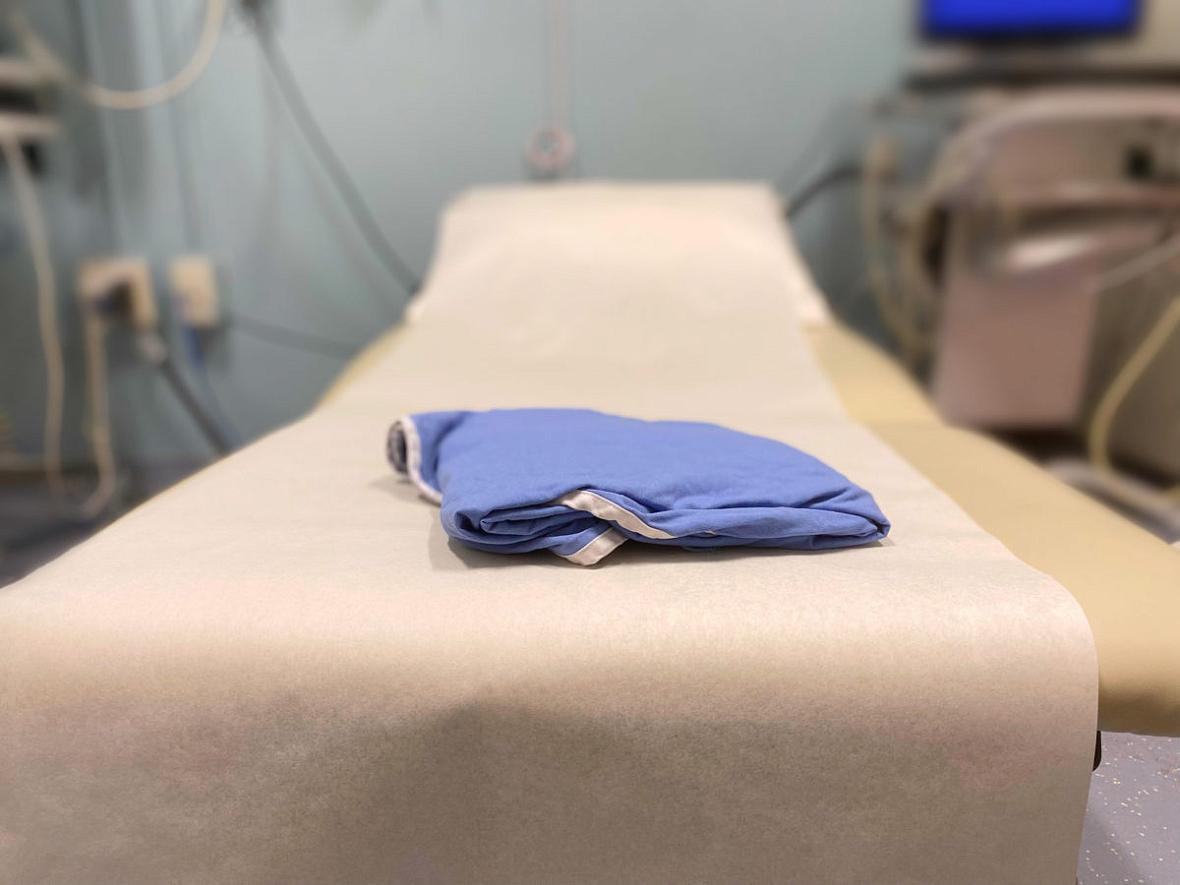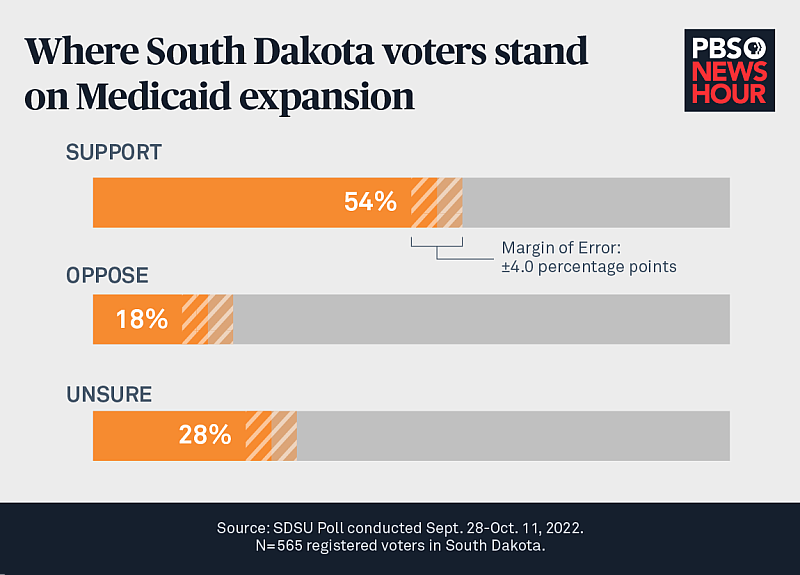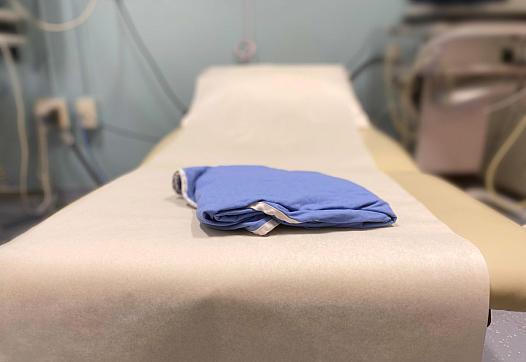Medicaid expansion is on the ballot in South Dakota. Here’s what voters think
The story was originally published in PBS NEWSHOUR with support from the USC Annenberg Center for Health Journalism's 2022 National Fellowship

If a majority of the state votes in support of Amendment D on Nov. 8, South Dakota will expand Medicaid by July 1 and an additional 42,500 people would be eligible for health care coverage.
Photo by Getty Images
South Dakota, one of a dozen states that has strict limits on who can qualify for Medicaid, could vote in November to expand health care coverage to thousands more people. A new state poll finds that supporters currently outweigh the opposition, but a large percentage have not made up their minds.
Roughly half – 54 percent – of registered voters in South Dakota support Medicaid expansion less than a month before the public decides the midterm referendum, according to final results from the SDSU Poll.
Another 18 percent of voters said they did not want to implement the constitutional Amendment D – to expand Medicaid access. An additional 28 percent said they were unsure about the issue.

Because states are responsible for administering Medicaid, it is governors, state legislatures and sometimes voters who decide how to manage the system. Most U.S. states have expanded access to Medicaid since 2010, when former President Barack Obama signed the Affordable Care Act into law, extending health care coverage to 21 million Americans in low-income households who are under age 65.
In states that have expanded, rural hospitals are less likely to close their doors and Medicaid expansion often offers “more supports to rural providers,” said Akeiisa Coleman, senior program officer for Medicaid policy at the Commonwealth Fund.
Typically in non-expansion states, people experience higher rates of uninsurance, Coleman said, adding that a lack of health care coverage often translates to avoidance of care and a decline in overall health outcomes. Nationwide, about 8 percent of Americans do not have health insurance, according to Kaiser Family Foundation. (A federal public health emergency during the coronavirus pandemic has kept patients from being disenrolled from Medicaid, but that declaration could expire in early 2023, and the number of uninsured could soon grow.)
Out of fewer than 900,000 residents living in the largely rural state, more than 115,000 South Dakotans were enrolled monthly in the public health insurance program, according to a 2020 South Dakota Department of Social Services report. Adult South Dakotans may qualify for Medicaid if they are pregnant, live with disabilities or have children, however income limits whittle exceptions out of those criteria. Overall, a KFF analysis of 2021 data suggested that 5 percent of South Dakotans remain uninsured.
If a majority of the state votes in support of Amendment D, South Dakota will expand Medicaid by July, and an additional 42,500 people would be eligible for health care coverage. Because the ballot measure is a constitutional amendment, it will be implemented under South Dakota law if it earns a majority of voter support. The federal government would fund nearly all of the $300 million annual cost of extending that coverage.
In the new poll, 67 percent of voters in lower-income households – those earning less than $75,000 each year – supported Medicaid expansion, compared to 47 percent of higher-earning households of $75,000 or more annually.
“Health care costs are high, especially when you get into the rural areas where you have real issues of access,” said David Wiltse, a political scientist who directs the SDSU Poll at South Dakota State University in Brookings. “Anything that can alleviate the costs, anything that can make the process easier for citizens, you’re going to find support.”
But divisive politics may be siphoning some support for Medicaid expansion. In June, Republican state legislators attempted to raise the bar for state referendum votes to succeed, up from a simple majority of at least 51 percent to 60 percent. Voters rejected that measure, which would have kicked in ahead of the Medicaid expansion referendum.
Republican Gov. Kristi Noem, who is up for re-election, has staunchly opposed Medicaid expansion. During a Sept. 30 televised gubernatorial debate, Noem said expansion would cover more “younger individuals that are single, able-bodied, able to go get a job and a career here in South Dakota and have the potential to earn benefits that would pay their medical bills.”
The poll found that more Republicans were unsure about the measure than outright opposed it. Nearly all Democrats – 90 percent – say they support Amendment D, along with 55 percent of independents and 30 percent of Republicans.
Six out of 10 women who were registered to vote in South Dakota also support the potential change, and were more likely to do so than men in the state. South Dakota women are also more likely to be uninsured compared to those who live in states with Medicaid expansion. Dr. Amy Kelley, a gynecologist in Sioux Falls, said her patients who currently do not have consistent access to health insurance often avoid care because they are scared of how much that care could cost.
Under Medicaid expansion, Kelley said they “will have more choices in who they can see. Instead of waiting until they’re super sick to go to the doctor, they might actually come in for more routine stuff. That’s just healthier for the population.”
The SDSU Poll was conducted between Sept. 28 and Oct. 11 and included 565 registered voters in South Dakota for a margin of error of 4 percentage points.
This story was produced as part of a project for the USC Annenberg Center for Health Journalism’s 2022 National Fellowship.


